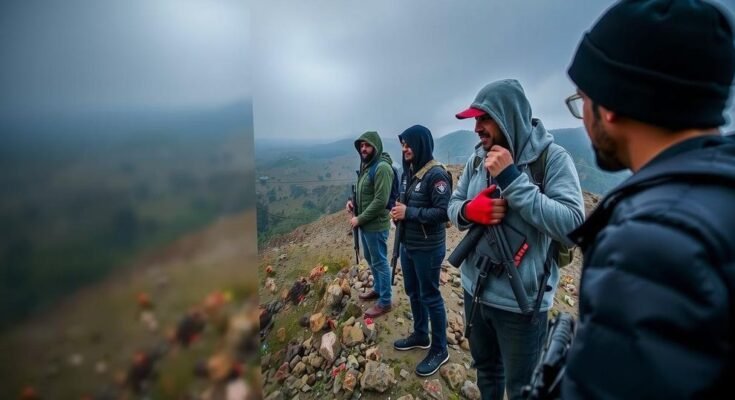The Azadi Briefing discusses the calls for an investigation into Iranian border guards allegedly killing Afghan migrants. Reports indicate these incidents occurred on October 13, with numerous deaths arising from gunfire and explosives. International organizations have demanded clarification from Iran, while humanitarian crises within Afghanistan continue to escalate, particularly regarding child malnutrition.
The Azadi Briefing highlights critical issues surrounding the reported killings of Afghan migrants by Iranian border guards. An investigation is being called for by the United Nations and international human rights organizations following incidents that allegedly resulted in deaths on October 13 in Iran’s Sistan-Baluchistan province. Local accounts indicate that Iranian forces discharged gunfire and used rocket-propelled grenades against Afghan migrants attempting to cross from Pakistan. In response, the Taliban government has initiated its own inquiry, while Iranian officials refute the occurrence of the event. Eyewitness testimonies express anger and demand accountability from relevant authorities due to the fatalities reported. This incident arises amid ongoing apprehension regarding the treatment and safety of millions of Afghan refugees in Iran, exacerbated by increasing violence and a concerning trend of deportations exceeding one million in recent times. Furthermore, Richard Bennett, the UN special rapporteur on human rights in Afghanistan, has urged for a transparent investigation into the reports to ensure clarity and a commitment to the dignity and safety of Afghans on a global scale. As the situation develops, international scrutiny of Iran’s handling of Afghan migrants is anticipated to intensify, which may affect diplomatic relations between Iran and the Taliban. Additionally, the International Federation of Red Cross and Red Crescent Societies flags alarming levels of malnutrition among Afghan children amid humanitarian challenges, stating that many communities are severely suffering from the ramifications of poverty and conflict. Notably, Save the Children has alerted that a significant proportion of Afghan children may face acute hunger this year, underscoring Afghanistan’s status as a pressing humanitarian crisis that demands urgent attention.
This briefing addresses a critical security and humanitarian concern for Afghan migrants in Iran following the Taliban’s takeover of Afghanistan in 2021. The situation has led to a significant outflow of Afghan nationals into neighboring states, most notably Iran. Reports of violence targeting migrants reflect escalating tensions at the borders, particularly in regions such as Sistan-Baluchistan, known for its instability. Furthermore, the alarming health conditions of Afghan children, exacerbated by economic downturns and conflict, highlight the broader humanitarian crises afflicting the country.
In summary, the Azadi Briefing underscores urgent calls for an investigation into the reported killings of Afghan migrants by Iranian border guards, reflecting a broader context of increasing violence against Afghan refugees. With millions facing dire circumstances in Iran and significant malnutrition levels among Afghan children escalating, this situation elucidates the critical need for international oversight and intervention to safeguard the rights and well-being of Afghan nationals.
Original Source: www.rferl.org




